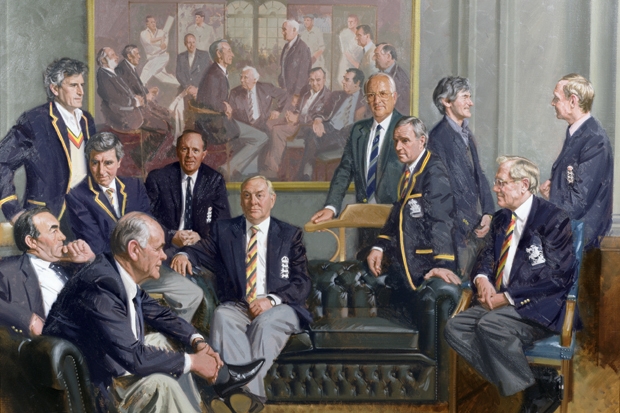After 13 barren years Yorkshire is back at the top of county cricket, where Geoffrey Boycott believes it has a place almost of right. We took the County Championship this year, beating Nottinghamshire at Trent Bridge by an innings and 152 runs. Ryan Sidebottom finished off the home side to post a splendid match performance of 9-65. He doesn’t get a mention in this book, though his father Arnie does.
In a part of the world where cricket is almost a religion, this is seen as a restoration of the natural order of things. It used to be said that when the county was low in the rankings, men read the Yorkshire Post upside down out of shame.
Boycott played for Yorkshire for 24 years from 1962, and captained the side from 1971 to 1978. ‘I learnt very early on that winning the County Championship was the club’s obsession, to the point that it was almost expected that we would win the title,’ he recalls in his second volume of autobiography. ‘This was understandable as we were so bloody good at winning it.’
Now they’re back on top it cannot be long before Boycott, the shoot-from-the- lip Arthur Scargill of cricket, admits modestly that his county’s success owes a great deal to him. Indeed, he makes a pre-emptive strike for the laurels in Corridor of Certainty, pointing out that during his two-year presidency of the club from 2012, Yorkshire won promotion back to Division One and came runner-up in the County Championship in their 150th anniversary year. Club rules prevented him from doing a third year, or they might have ended somewhere higher than top.
The book’s title is a play on the ‘corridor of uncertainty’, an area just outside the off stump most challenging to the batsman. Boycott is credited with coining the phrase, though it appeared in the Australian media the year before he first used it on England’s 1990 tour of the West Indies.
The subtitle, My Life beyond Cricket, is misleading. Three-quarters of the book is about cricket, and the remainder a harrowing account of his successful fight against oral cancer in the 1990s, with heart-warming tributes to his long-suffering wife and some freakish stuff about the healing qualities of feng shui.
He talks about ‘opening up about his private life’, but his conviction, suspended jail sentence and fine by magistrates in France for assaulting his then partner is dismissed as ‘French farce’. Boycott on Boycott is about cricket, leadership, professionalism and defence of his notoriously slow game. ‘It is better to score slowly than not at all,’ he notes drily.
There is too much rehash here of his old wars with the Yorkshire County Cricket Club, the Packer fiasco and his battles with English game administrators, and saving Test cricket. Boycott looks down his considerable nose at England’s addiction to psychologists, and while he doesn’t say it, this practical, thoughtful book would be of more use to the players, the selectors and the ECB than a whole regiment of shrinks.
His friend Michael Parkinson might demur, but I imagine most fellow Tykes would nominate GB as ‘the greatest living Yorkshireman’. Boycott, the most caustic critic in the commentary box, insists: ‘I am not egotistical.’ Ha!
Available from the Spectator Bookshop, £16 Tel: 08430 600033






Comments